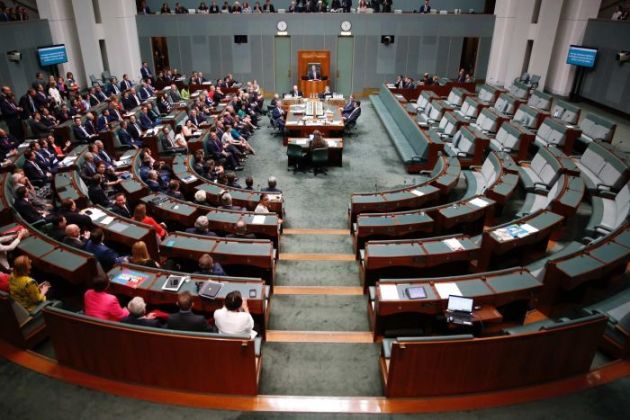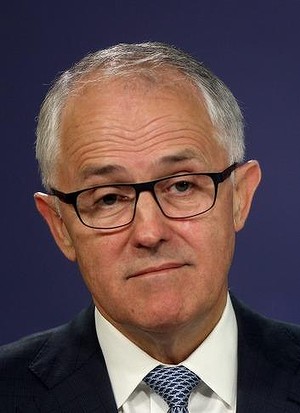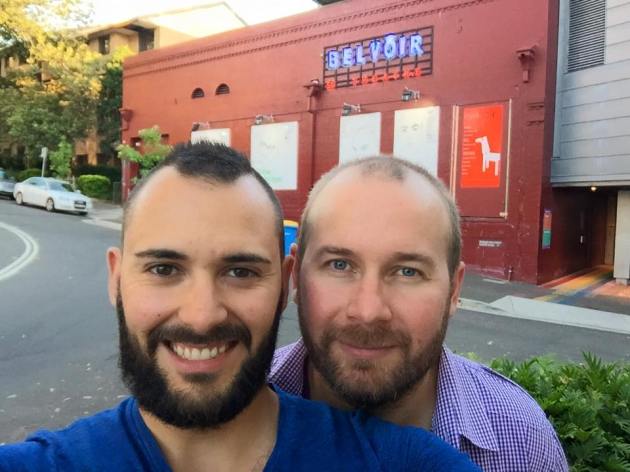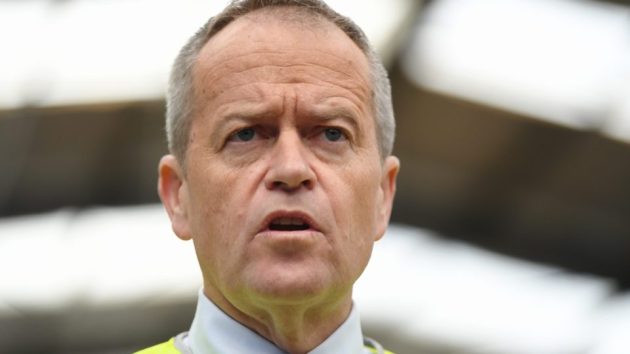This post is part of a series looking at the unfinished business of LGBTI equality in Australia. You can see the rest of the posts here.
12 months ago today, the House of Representatives passed Liberal Senator Dean Smith’s Marriage Amendment (Definition and Religious Freedoms) Act 2017.
It was the culmination of more than 13 years of campaigning by Australia’s lesbian, gay, bisexual, transgender and intersex (LGBTI) communities.
When that law took effect, two days later, Australia finally permitted same-sex couples to wed and recognised the marriages of most[i] LGBTI couples.
But we did not achieve genuine marriage equality – nor do we enjoy it exactly one year later.
This is because the terms and conditions which apply to the marriages of LGBTI couples after 9 December 2017 are different to those which applied to cisgender heterosexual couples before that date.
First, and most importantly, at the time of writing, forced trans divorce – where a transgender person who is already married cannot gain access to accurate identity documentation unless they first divorce their partner – still exists in Western Australia and Tasmania[ii] (while legislation to abolish forced trans divorce has only passed in the Northern Territory in the past fortnight).
One of the positive aspects of last year’s marriage Bill is that it included a 12-month phase out of exceptions to the Commonwealth Sex Discrimination Act 1984 which allowed states and territories to enforce these discriminatory laws.
Which means that, from this Sunday, trans people who are already married in WA and Tasmania will be able to lodge a complaint with the Australian Human Rights Commission (AHRC) about their mistreatment under the Gender Reassignment Act 2000 (WA) and the Births, Deaths and Marriages Registration Act 1999 (Tas).
Presumably, they will also be able to seek a new birth certificate through this process (although whether the respective state Governments provide one remains to be seen).
Nevertheless, for as long as forced trans divorce sits on the statute books in any Australian jurisdiction, and we compel some trans people who are already married to take action with the AHRC – or even have to go to Federal Court – just to gain access to accurate identity documentation, it is inaccurate to say we have genuine marriage equality in Australia.
[Update May 2019: Western Australia abolished its forced trans divorce laws in February 2019, while Tasmania removed its own forced trans divorce provisions in April 2019, taking effect earlier this month. This means that – finally – forced trans divorce is history.]
Second, the Marriage Amendment (Definition and Religious Freedoms) Act 2017 didn’t just allow LGBTI couples to wed – it also inserted new ‘religious exceptions’ into the Marriage Act 1961 itself. For example, it gave existing civil celebrants the ability to nominate themselves as ‘religious marriage celebrants’ and thereby refuse to perform the ceremonies of same-sex couples.
Importantly, this didn’t just apply to civil celebrants who were ‘ministers of religion’ of unrecognised religions (sub-section 39DD(1), which is at least arguably consistent with freedom of religion).
It also allowed existing civil celebrants to gain access to these special privileges based on nothing more than their personal beliefs. As is now set out in sub-section 39DD(2) of the Marriage Act 1961:
Marriage celebrants who wish to be religious marriage celebrants on the basis of their religious beliefs
(2) The Registrar of Marriage Celebrants must identify a person as a religious marriage celebrant on the register of marriage celebrants if:
(a) the person was registered as a marriage celebrant under Subdivision C of this Division immediately before Part 1 of Schedule 1 to the Marriage Amendment (Definition and Religious Freedoms) Act 2017 commenced; and
(b) the person gives the Registrar notice that the person wishes to be identified as a religious marriage celebrant on the register:
(i) in writing; and
(ii) in a form approved by the Registrar; and
(iii) within 90 days after Part 1 of Schedule 1 of the Marriage Amendment (Definition and Religious Freedoms) Act 2017 commences; and
(c) the choice is based on the person’s religious beliefs [emphasis added].
In effect, a civil celebrant who was registered before 9 December 2017 could simply sign-up to be able to say ‘no gays allowed’ (or no lesbians, bisexuals or transgender people allowed either).[iii]
[Update 13 December 2018: In fact, as revealed by the Ruddock Religious Freedom Review Report, 406 existing civil celebrants registered to take advantage of these new special privileges to discriminate against LGBTI couples. Which, to be honest, is even more people choosing prejudice over equal love than I had anticipated.]
Remember that these celebrants are not ministers of religion, and the ceremonies they officiate need not be religious. There is also no test of their beliefs – it is based solely on self-declaration.
In practice, this provision has very little to do with actual religious freedom, but instead provides new legal protections to homophobia, biphobia and transphobia as long as it is dressed up as ‘religious’.
That much is made abundantly clear by the fact similar provisions had never been introduced to ‘protect’ civil celebrants who wanted to refuse to (re-)marry people who had previously been divorced, or to reject ceremonies for couples of different faiths – both of which arouse strong religious beliefs for many people.
These provisions were introduced only when LGBTI couples were finally allowed to marry, demonstrating that they are not aimed at protecting genuine religious freedom at all – their real target is undermining LGBTI equality.
This is obviously a terrible provision in and of itself. It also sets a negative precedent for other laws.
After all, if civil celebrants – who are in reality a small business, offering commercial services to the public at large – are allowed to discriminate against their customers on the basis of the customer’s sexual orientation or gender identity, then why shouldn’t other businesses be allowed to do the same (a point that religious fundamentalists made frequently during the Ruddock Religious Freedom Review).
Indeed, that brings me to the third reason why we still don’t have genuine marriage equality in Australia.
Amidst all of the celebrations of the passage of same-sex marriage (and yes, as someone engaged to be married, I still think some celebration was justified), I wonder how many people understand that the following is now written into the Marriage Act:
47B Bodies established for religious purposes may refuse to make facilities available or provide goods or services
(1) A body established for religious purposes may refuse to make a facility available, or to provide goods or services, for the purposes of the solemnisation of a marriage, or for purposes reasonably incidental to the solemnisation of a marriage, if the refusal:
(a) conforms to the doctrines, tenets or beliefs of the religion of the body; or
(b) is necessary to avoid injury to the religious susceptibilities of adherents of that religion.
(2) Subsection (1) applies to facilities made available, and goods or services provided, whether for payment or not.
(3) This section does not limit the grounds on which a body established for religious purposes may refuse to make a facility available, or to provide goods or services, for the purposes of the solemnisation of a marriage, or for purposes reasonably incidental to the solemnisation of a marriage.
(4) To avoid doubt, a reference to a body established for religious purposes has the same meaning in this section as it has in section 37 of the Sex Discrimination Act 1984.
(5) For the purposes of subsection (1), a purpose is reasonably incidental to the solemnisation of marriage if it is intrinsic to, or directly associated with, the solemnisation of the marriage [emphasis in original].
This is an incredibly broad exception, applying to anything provided by a religious organisation that has anything to do with a LGBTI wedding – even where it is provided by a service that advertises to the public at large and is run for profit.
The most generous interpretation of the inclusion of this amendment is that it merely replicates, and reinforces, the existing religious exceptions found in section 37(1)(d) of the Sex Discrimination Act 1984 (provisions which have come under scrutiny this week because they also allow discrimination by religious schools against LGBT students and teachers).
But, if that is the case, their inclusion in the Marriage Act is entirely unnecessary. And for a reform that has powerful symbolic value, what does it say about the passage of same-sex marriage that it was accompanied by these equally symbolic, but discriminatory, amendments.
On the other hand, it is arguable that the addition of section 47B has actually increased the range of circumstances in which religious organisations can discriminate against people on the basis of their sexual orientation or gender identity.
This is particularly the case in relation to Tasmania, where the Anti-Discrimination Act 1998 remains the best practice LGBTI discrimination law in Australia.
This is because the religious exceptions in section 47B of the Marriage Act 1961 are framed in a positive way (‘a body established for religious purposes may refuse…’), whereas the existing Sex Discrimination Act 1984 exceptions are phrased in a negative way (‘Nothing in Division 1 or 2 affects…’).
This is an important distinction because it is more likely that a positively-framed religious exception will override the anti-discrimination laws of jurisdictions which are inconsistent. In practice, the Marriage Amendment (Definition and Religious Freedoms) Act 2017 has likely allowed new forms of discrimination in our most Southern state.
Even if that interpretation is incorrect, it should again be highlighted that this type of exclusionary provision was never needed to allow religious organisations to refuse to serve couples where one or both had previously been divorced, or where the couple had different religious backgrounds.
Section 47B was only introduced when LGBTI couples were allowed to walk down the aisle. It’s true purpose is to allow religious bodies – even where they are advertise to the public at large and are run for a profit – to tell same-sex couples to go somewhere else.[iv]
Perhaps the most disappointing part about the Marriage Amendment (Definition and Religious Freedoms) Act 2017 is that, despite being one of the worst marriage amendment Bills ever introduced into Commonwealth Parliament,[v] it was signed-off on by Australian Marriage Equality (AME), and the Equality Campaign, supposedly on behalf of the LGBTI community.
In the days after the announcement of the postal survey results, they presented Senator Dean Smith’s Bill as a fait accompli, arguing for its passage without calling for the removal of its unnecessary provisions regarding existing civil celebrants or wedding-related services, effectively making them accomplices to this new discrimination.
In my opinion, AME/The Equality Campaign were wrong to do so.
They were wrong on principle. As an organisation purporting to advocate for marriage equality, they should have been calling for genuine equality, not defending the inclusion of provisions that were never needed for anyone else, but were only introduced to target LGBTI Australians. Their acquiescence makes it harder to push for the removal of these provisions in the future.
They were wrong on strategy. The religious fundamentalists inside the Coalition Government were the ones who had pushed for the unnecessary, wasteful, harmful and divisive postal survey – and they lost, with the majority of Australians showing they supported the equal treatment of all couples, irrespective of sexual orientation, gender identity or sex characteristics.
That is what the LGBTI community should have been demanding: full equality and nothing less. If the Coalition Government refused to pass it because it did not include new rights to discriminate against LGBTI couples, even after imposing an unprecedented $80.5 million three-month national opinion poll, then they would have experienced the biggest of backlashes. It was not up to the LGBTI community to save the Government from itself.
And they were wrong on process, because they never secured the informed consent of the LGBTI community to these changes. They never explained, in detail, what had been given up and why, and they never asked lesbian, gay, bisexual, transgender and intersex (LGBTI) people whether it was a price they were prepared to pay.
Indeed, when other organisations like just.equal and PFLAG Australia did ask the community what they thought, the response was generally unequivocal – there must be no new discrimination.[vi] In the absence of other evidence, that is the position I think AME/The Equality Campaign should have adopted.[vii]
It is likely I will be criticised, possibly quite strongly, for writing this (and especially those last few paras). Many will argue that what’s done is done, and should therefore be left alone.
Maybe.
Except I would argue that what was done last year – the inclusion of new discriminatory provisions in the Marriage Act itself – needs to be undone.
In order to do so, we need to know what exactly is in the Act, and how and why it was included. And then we need to work out a strategy for ensuring sections 39DD(2) and 47B are removed from the statute books so that the stain of discrimination is washed clean, permanently.
Because for as long as any LGBTI couple is turned away by a homophobic or transphobic civil celebrant (calling themselves a ‘religious marriage celebrant’), and for as long as religious organisations enjoy special privileges to discriminate in the provision of wedding-related goods, services or facilities, then we don’t enjoy genuine marriage equality in Australia.

The moment Commonwealth Parliament passed the Marriage Amendment (Definition and Religious Freedoms) Act 2017. It introduced same-sex marriage. But it isn’t marriage equality.
If you have enjoyed reading this article, please consider subscribing to receive future posts, via the right-hand scroll bar on the desktop version of this blog or near the bottom of the page on mobile. You can also follow me on twitter @alawriedejesus
Footnotes:
[i] See the discussion of forced trans divorce below.
[ii] Legislation to abolish forced trans divorce – as well as making the inclusion of gender on birth certificates optional – has passed Tasmania’s Legislative Assembly, but it is unclear if or when it will pass the Legislative Council.
Legislation to abolish forced trans divorce passed Western Australia’s lower house in late 2018. It was finally passed by the Legislative Council on 12 February 2019, leaving Tasmania as the last state yet to abolish Forced Trans Divorce.
[iii] Authorised under section 47A:
Religious marriage celebrants may refuse to solemnise marriages
(1) A religious marriage celebrant may refuse to solemnise a marriage despite anything in this Part, if the celebrant’s religious beliefs do not allow the celebrant to solemnise the marriage
Grounds for refusal not limited by this section
(2) This section does not limit the grounds on which a religious marriage celebrant may refuse to solemnise a marriage.
[iv] There is a fourth problem with the Marriage Amendment (Definition and Religious Freedoms) Act 2017 and that is it reinforces the ability of defence force chaplains to discriminate in terms of which marriage ceremonies they will officiate. As outlined in section 81 of the Marriage Act 1961:
(2) A chaplain may refuse to solemnise a marriage despite anything in this Part, if any of the following applies:
(a) the refusal conforms to the doctrines, tenets or beliefs of the religion of the chaplain’s religious body of religious organisation;
(b) the refusal is necessary to avoid injury to the religious susceptibilities of adherents of that religion;
(c) the chaplain’s religious beliefs do not allow the chaplain to solemnise the marriage.
Grounds for refusal not limited by this section
(3) This section does not limit the grounds on which an authorised celebrant (including a chaplain) may refuse to solemnise a marriage.
This provision is offensive because military chaplains are public servants, paid for by the taxpayer (including of course LGBTI taxpayers), and obligated to serve all of the people supposedly under their pastoral care. They should be required to provide these services to all ADF personnel, irrespective of their sexual orientation or gender identity – and if they cannot, they should find another job.
On the other hand, it should be acknowledged that defence force chaplains already had the ability to determine who they performed marriages for (although the revised section 81 made this power even clearer) meaning it is somewhat distinct from the existing civil celebrant, and wedding-related services, religious exceptions, both of which are genuinely new ‘rights’ to discriminate.
[v] Perhaps equal worst with Liberal Democrat Senator David Leyonhjelm’s Freedom to Marry Bill 2014, which allowed all civil celebrants to turn away LGBTI couples, but which did not insert new general religious exceptions in the Marriage Act itself.
Liberal Senator James Paterson’s Marriage Amendment (Definition and Protection of Freedoms) Bill 2017 – written in conjunction with the Australian Christian Lobby – was obviously far worse than both, but it was never formally introduced.
[vi] See the results of their November 2017 community survey here.
In particular:
- 63.1% of respondents opposed the Smith Bill’s civil celebrant provisions
- 86.9% opposed the wedding-related services exceptions, and
- 77.4% opposed provisions allowing military chaplains to refuse to officiate the ceremonies of LGBTI ADF personnel.
Importantly, 53.7% of respondents indicated they were willing to wait until marriage equality could be achieved without such provisions (while only 27.9% were not willing to wait and 18.4% were neutral on this issue).
[vii] For more on these issues, see Rodney Croome’s excellent recent article in New Matilda, ‘Yes Yes No: Why the History of Marriage Equality Must be Told Accurately’.









